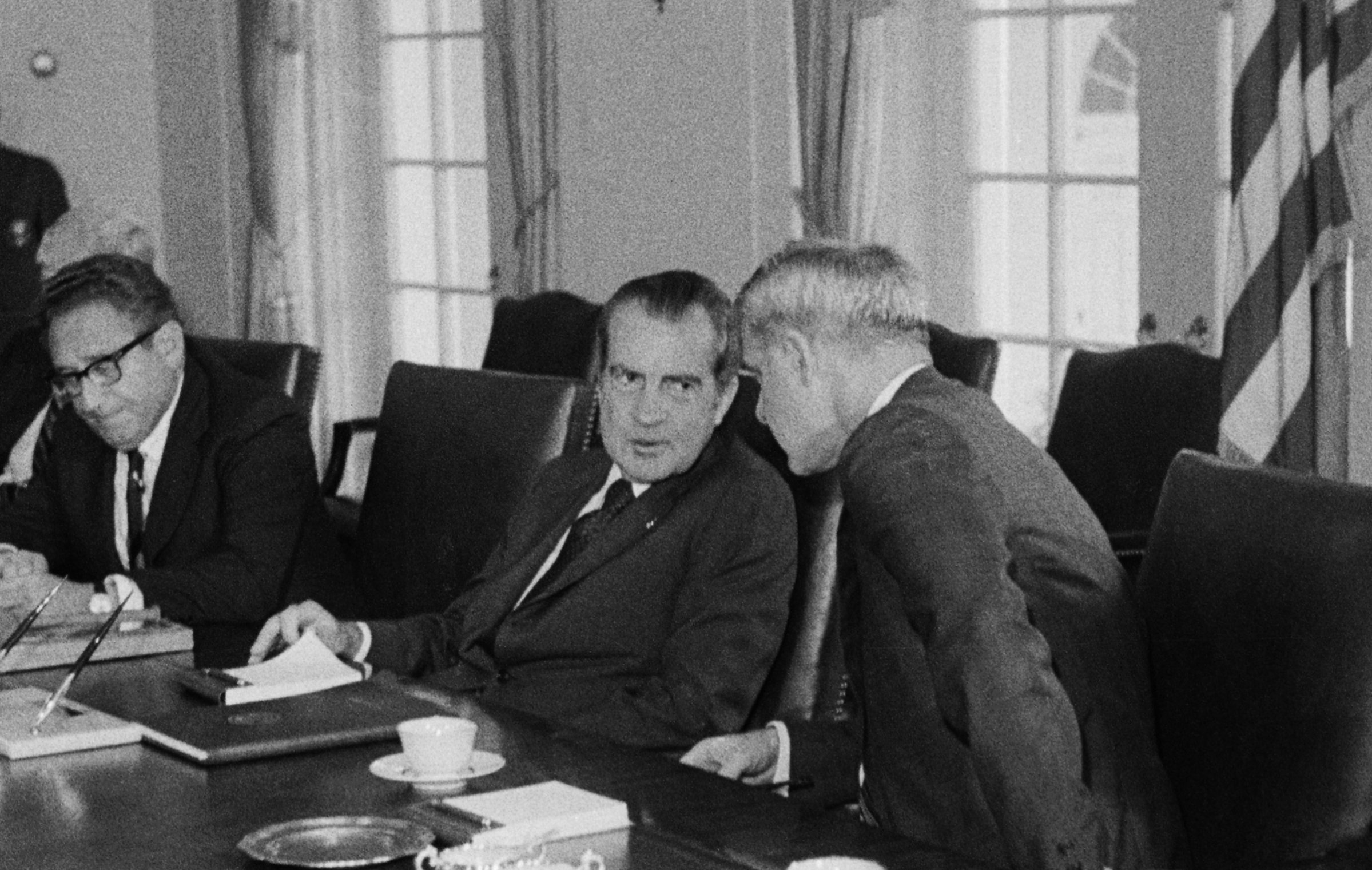
After the New York Times on Wednesday published an op-ed from an anonymous official who claimed that a “resistance inside the Trump Administration” was “thwarting Mr. Trump’s more misguided impulses,” it didn’t take long for some historians to see in it yet another reason to compare troubles in the Trump White House to the Watergate-era Nixon Administration.
One particular moment from Nixon’s time offers insight into what it might look like for staffers to manage a President’s potential volatility: In the period before Nixon’s Aug. 9, 1974, resignation, Secretary of Defense James Schlesinger reportedly ordered certain presidential orders — especially those related to nuclear arms — to be cleared by himself personally or National Security Advisor Henry Kissinger.
The story goes that Nixon had alarmed Schlesinger and advisors by declaring: “I can go into my office and pick up the telephone, and in 25 minutes 70 million people will be dead.”
As Craig Nelson explains in his history of the atomic age, Nixon embraced the so-called Madman Theory when it came to nuclear weapons. According to that theory, it helped U.S. foreign policy for Nixon to seem a bit crazy because it made potential enemies wary that he might actually use nuclear weapons. But California Senator Alan Cranston wasn’t comforted by that possible explanation. He is said to have flagged Schlesinger on the “the need for keeping a berserk President from plunging us into a holocaust,” as TIME previously reported.
Fears about what Nixon might do had arisen even earlier that year.
In the spring of 1974, Joseph Laitin, who had worked in public affairs in the Johnson White House, approached Schlesinger and “broached some of his fears,” paraphrased by Seymour Hersh in 1983 as: “Was it possible for the President of the United States to authorize the use of nuclear weapons without his secretary of defense knowing it? What if Nixon, ordered by the Supreme Court to leave office, refused to leave and called for the military to surround the Washington area? Who was in charge then? Whose orders would be obeyed in a crisis?” Hersh reported that at one point Schlesinger said, “I had seen enough so that I was not going to run risks with the future of the United States.”
A few weeks after Nixon’s resignation, the public began to get a look at the story of the White House being hyper-vigilant.
An Aug. 25, 1974, story on the front page of the New York Times was headlined “Pentagon Kept Tight Rein in Last Days of Nixon Rule: Schlesinger and the Joint Chiefs Acted to Insure White House Gave Military Units No Unauthorized Orders.” It described Schlesinger and the Joint Chiefs of Staff chairman George S. Brown as keeping “unusually close control over lines of command.” A senior Pentagon official told the paper that “Schlesinger began to worry…Nixon or one of his aides might get in touch with some military units directly” and “order that some action be taken to block the ‘constitutional process.'” On the other hand, the paper reported that the official said that the concern was “hypothetical,” and the article also quoted Schlesinger as saying that he was careful not to do anything that would interfere with “the proper constitutional and legislated chain of command.”
Whether these ideas led to any real change in White House procedure is hard to say, and not just because a nuclear war didn’t happen. As historian Stanley Kutler points out, there are no “corroborating documents” that back up this story, nor have other public officials told the same sequence of events.
Some journalists, however, argue that it would be too risky for Schlesinger to put such orders into writing. Now it remains to be seen whether this anonymous Trump staffer feels the same way or whether any paper trail will surface.
More Must-Reads from TIME
- Cybersecurity Experts Are Sounding the Alarm on DOGE
- Meet the 2025 Women of the Year
- The Harsh Truth About Disability Inclusion
- Why Do More Young Adults Have Cancer?
- Colman Domingo Leads With Radical Love
- How to Get Better at Doing Things Alone
- Michelle Zauner Stares Down the Darkness
Write to Olivia B. Waxman at olivia.waxman@time.com